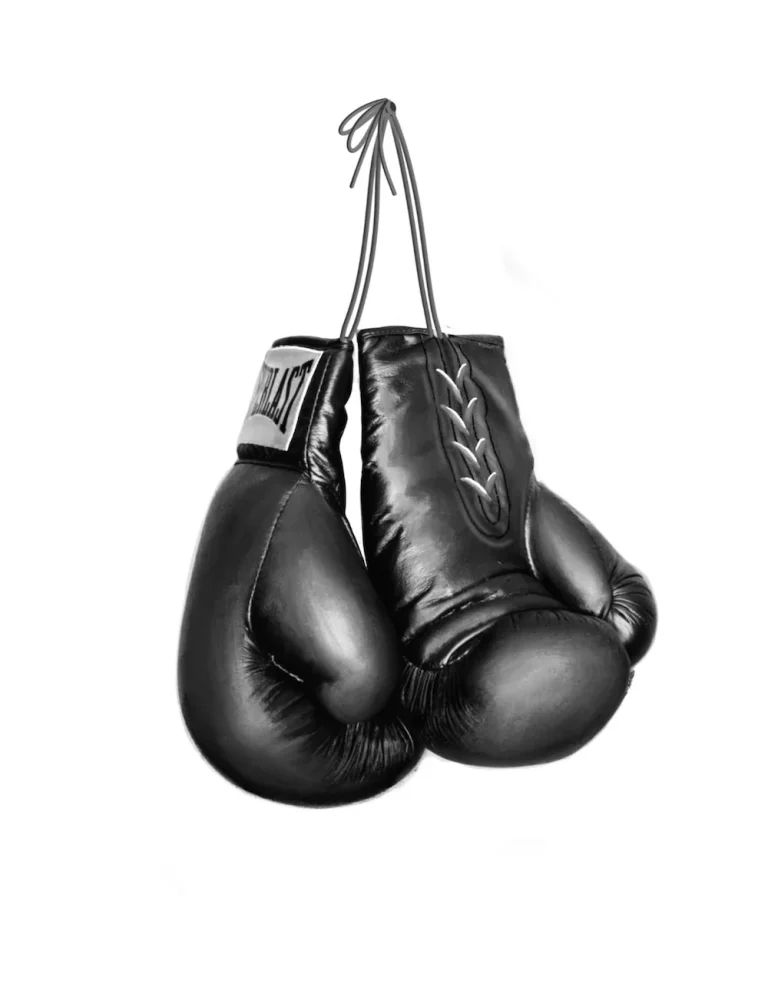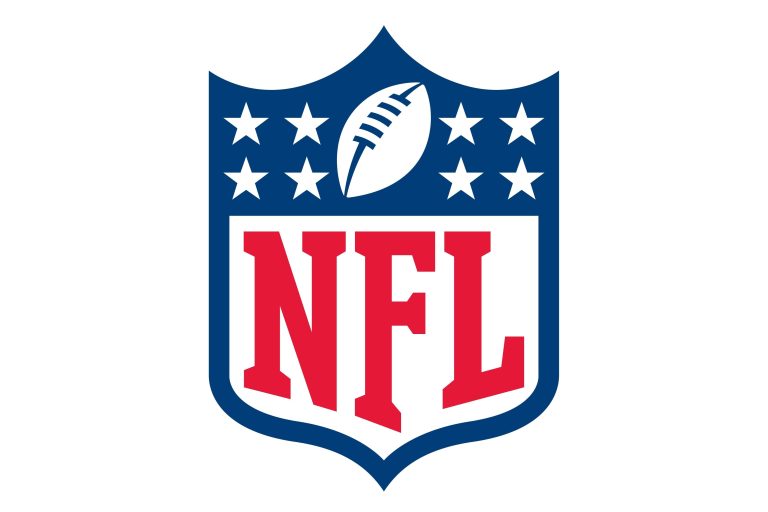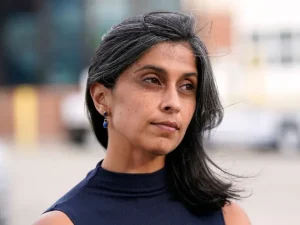A tragic incident has shaken the combat sports community after a 31-year-old mixed martial artist died following a sudden collapse during a fight in Chicago. What began as a routine evening of competition at the Matador Fighter Challenge ended in shock, grief, and unanswered questions as fellow athletes, promoters, and fans struggled to comprehend the loss.
The fighter, identified as Isaac Johnson, had entered the cage on Friday night as part of a scheduled matchup at the Cicero Stadium. According to early reports, the bout proceeded normally until late into the contest, when Johnson suddenly fell and appeared unable to recover. Medical personnel stationed at the event immediately intervened, rushing into the cage to assess his condition and initiate urgent care.
He was transported to a nearby hospital at approximately 8:38 p.m., but despite efforts to stabilize him, Johnson was pronounced dead just after midnight at 12:01 a.m. An official death investigation is now underway, with the Chicago Police Department confirming that an autopsy has been scheduled to determine the precise cause of death. As of now, no definitive medical conclusions have been released, and authorities have not suggested foul play.
The shock reverberated quickly through the MMA world, as fighters and fans who had been watching the event learned of the collapse. Many initially believed Johnson was experiencing a routine stoppage or injury—something common in combat sports. However, the severity of the situation became unmistakable when medical teams remained in the cage for an extended period before escorting him out on a stretcher.
Joe Goyita, the promoter responsible for organizing the Matador Fighter Challenge, released a deeply emotional public statement shortly afterward. In a message shared on Facebook, he wrote with evident grief: “This is a post I hoped to never make. Last night one of the fighters in our event, Isaac Johnson, collapsed towards the end of his fight.”
His statement continued with an account of the immediate response: “Medical attention was given by medical staff on hand and he was transported to hospital. I was then informed at around 1:30 a.m. this morning that he didn’t make it.” Goyita added that words could not express the depth of his sorrow, offering his condolences to Johnson’s family, friends, and training partners. He also indicated that more details would be released once medical findings were official.
As tributes began to circulate online, Johnson’s identity as both an athlete and a person came into clearer focus. Those who trained with him described him as dedicated, fiercely disciplined, and passionate about the sport. He had competed in both amateur and professional settings over the years, driven by a love for martial arts and an unwavering commitment to improving his craft.
Gyms he had trained at posted messages acknowledging his loss, many accompanied by photos of him in training sessions, smiling after sparring rounds, or standing proudly after weigh-ins. Teammates wrote about his loyalty and work ethic, noting that he was always among the first to arrive and the last to leave.
In the hours following the tragedy, discussions began to surface about safety standards within regional MMA events. While major promotions like the UFC maintain extensive medical oversight—including pre-fight physicals, on-site doctors, and post-fight evaluations—smaller circuits vary in their medical protocols depending on regulation, funding, and venue. The Matador Fighter Challenge is one such independent event, operating under local athletic oversight with its own panel of medical professionals.
Witnesses said that the ringside medical team responded quickly, immediately assessing Johnson when he collapsed. The promoter emphasized that trained medical personnel were present and acted without delay. Even so, questions remain about what underlying factors—if any—may have contributed to the emergency. Issues such as dehydration, weight cutting, cardiovascular strain, and unnoticed pre-existing conditions have historically played roles in rare but serious incidents in combat sports.
The autopsy report is expected to bring some clarity to these questions, although it may take days or even weeks before findings are complete. Police have described the investigation as standard procedure, emphasizing that incidents involving sudden deaths in athletic events require thorough review.
Fans who attended the event noted that the atmosphere shifted dramatically after Johnson was removed from the cage. While the remainder of the event continued, many described a feeling of shock and grief settling over the venue. Some fighters reportedly struggled emotionally as they learned of Johnson’s critical condition.
Accounts from those close to Johnson paint a picture of a man deeply devoted to MMA—not for fame or fortune, but for the structure, challenge, and sense of purpose it offered. Friends remembered his willingness to help new students learn basic techniques, often spending extra time reinforcing fundamentals. Others recalled how he talked about the discipline martial arts instilled in him and how training gave him direction and stability.
As news spread throughout the sports community, fighters from across the country began sharing condolences online, many reflecting on the risks inherent in combat sports. While fatalities in MMA remain extremely rare, the intense physicality of the sport means that participants accept certain dangers. Still, any loss reverberates powerfully, prompting reflection about health precautions, training intensity, and the cumulative toll of competition.
Professionals also pointed to the broader context: thousands of bouts occur each year without serious injury, thanks to evolving safety regulations, increased medical monitoring, and improved understanding of athlete health. Yet tragedies like Johnson’s reinforce that improvements can always continue, and that athlete safety must remain the top priority across all levels of the sport.
Promoter Joe Goyita concluded his statement by expressing his commitment to supporting Johnson’s loved ones during the coming days. Colleagues say that counseling services may also be offered to fighters who participated in the event, many of whom are grappling with the emotional impact of witnessing a fellow athlete collapse in real time.
Local athletic officials are expected to review the incident in detail once the autopsy results are released. These findings will likely influence discussions about additional measures that could further reduce risk at smaller MMA events, including medical screenings, hydration protocols, and real-time monitoring of fighters during bouts.
For now, the focus remains on honoring Isaac Johnson’s life. Friends and teammates describe him not only as a formidable competitor but as a supportive training partner and a person who lived with resilience and drive. His loss has created a void that his community says will not be easily filled.
As the investigation continues, his fight community, friends, and family await answers—hoping for clarity, seeking closure, and mourning a life cut tragically short.

Emily Johnson is a critically acclaimed essayist and novelist known for her thought-provoking works centered on feminism, women’s rights, and modern relationships. Born and raised in Portland, Oregon, Emily grew up with a deep love of books, often spending her afternoons at her local library. She went on to study literature and gender studies at UCLA, where she became deeply involved in activism and began publishing essays in campus journals. Her debut essay collection, Voices Unbound, struck a chord with readers nationwide for its fearless exploration of gender dynamics, identity, and the challenges faced by women in contemporary society. Emily later transitioned into fiction, writing novels that balance compelling storytelling with social commentary. Her protagonists are often strong, multidimensional women navigating love, ambition, and the struggles of everyday life, making her a favorite among readers who crave authentic, relatable narratives. Critics praise her ability to merge personal intimacy with universal themes. Off the page, Emily is an advocate for women in publishing, leading workshops that encourage young female writers to embrace their voices. She lives in Seattle with her partner and two rescue cats, where she continues to write, teach, and inspire a new generation of storytellers.









